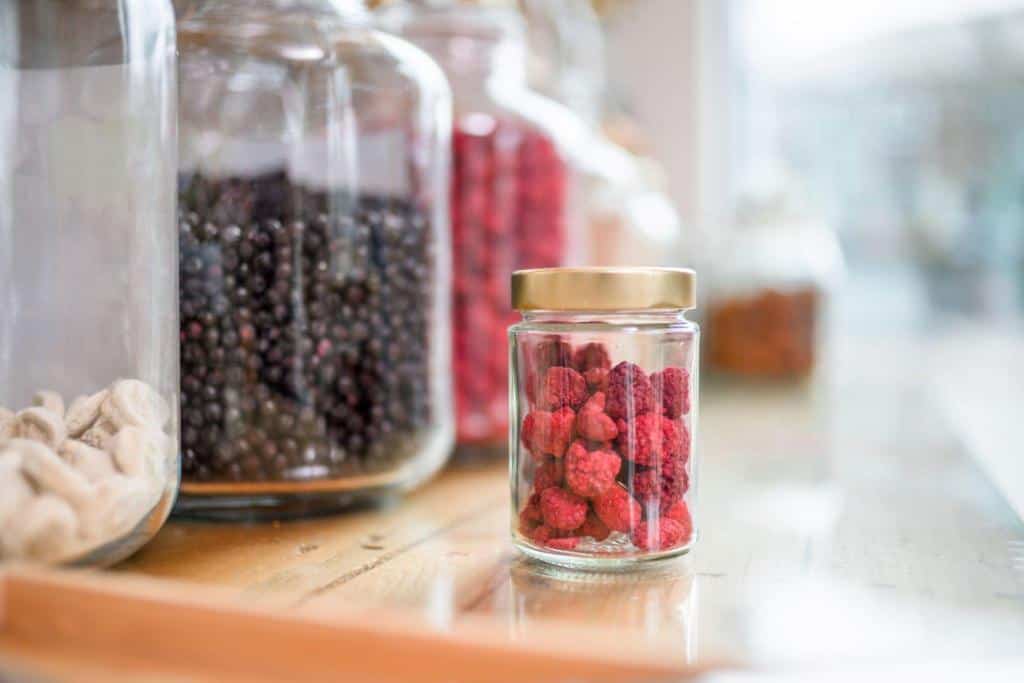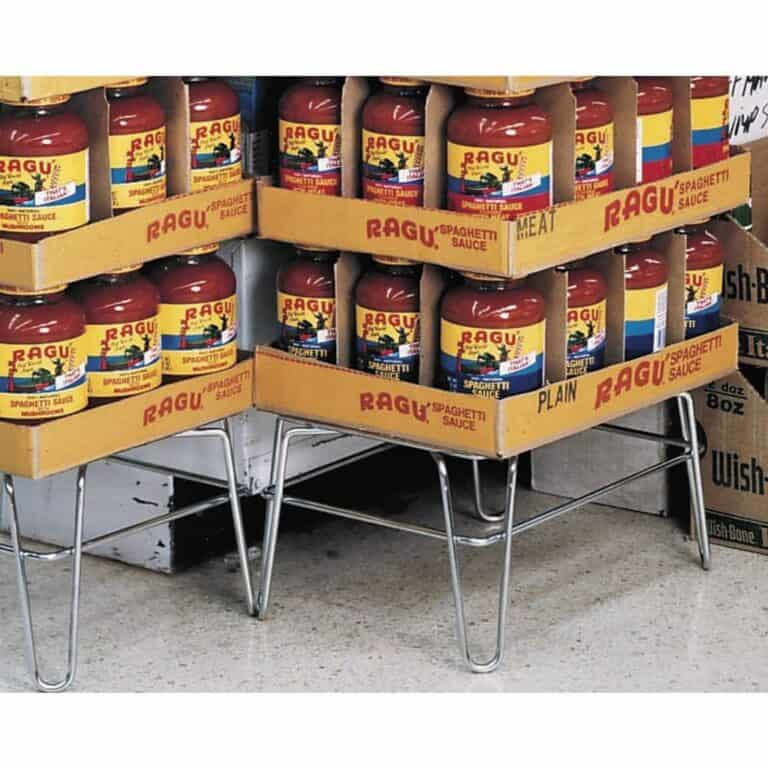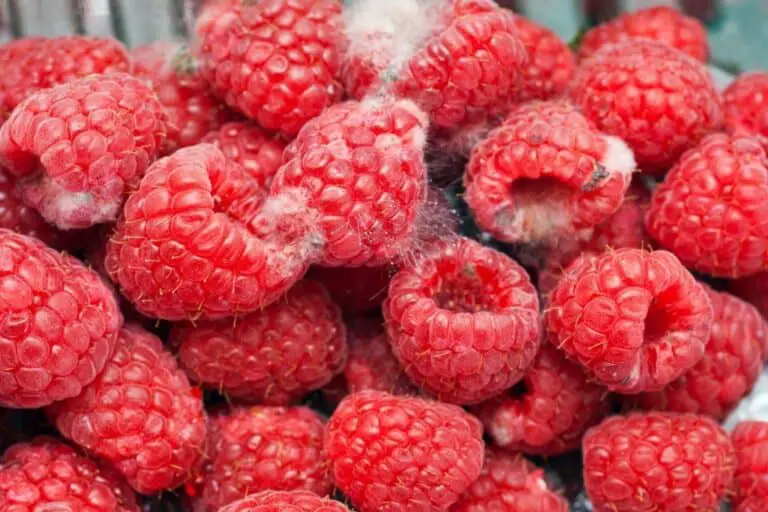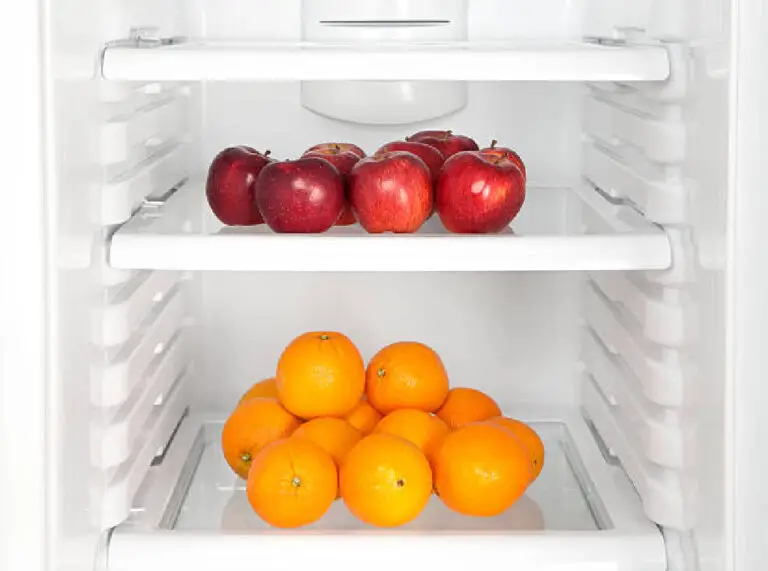How to Store Raspberries in Mason Jars to Keep Fresh and Juicy

There’s nothing quite like a fresh, juicy raspberry to add a burst of flavor to your day. Whether you picked them from your own garden or bought them at the farmers’ market, raspberries are a delightful summer treat.
But if you’re not careful, those delicate berries can quickly turn soft and mushy, leaving you with a bowl full of disappointment. That’s where mason jars come in handy. Not only do they add a touch of rustic charm to your kitchen, but they’re also an excellent storage solution for your raspberries.
In this article, we’ll show you how to store raspberries in mason jars, so you can enjoy their sweet, tangy goodness for days to come. So, let’s get started!
Are Mason Jars Better than Plastic for Storage?
Mason jars are becoming more and more popular for storing food because they are versatile and last a long time. One of the main advantages of using mason jars is that they are made of glass, which is a non-toxic material that does not leach harmful chemicals into your food, unlike plastic containers. Furthermore, mason jars are environmentally friendly and reusable, which means that you can use them repeatedly without causing any harm to the planet.
Mason jars also provide an airtight seal that keeps your food fresh for longer periods compared to plastic containers. The lid’s airtight seal lowers the possibility of bacterial growth and spoilage by preventing air and moisture from entering the jar. This makes mason jars ideal for storing fruits like raspberries, which are highly perishable and tend to spoil quickly if left in the open air.
Mason jars are transparent, which allows you to see the contents of the jar easily. This is particularly useful when you need to identify the type of berries stored inside the jar or if you want to check for any signs of spoilage or mold.
Lastly, mason jars are versatile, and you can use them for various purposes, including canning, storing dry goods like flour, rice, and nuts, and even as a drinking glass. Their sturdy construction makes them perfect for both hot and cold foods, and you can even use them in the microwave and the oven (without the lid) for heating or baking.
Benefits of Using Mason Jars for Raspberry Storage
Mason jars are an excellent storage solution for raspberries due to their many benefits. Here are some of the advantages of using mason jars for raspberry storage:
- Longer Shelf Life: Raspberries are delicate and perishable, and they tend to spoil quickly. Storing raspberries in mason jars increases their shelf life by keeping them fresh for longer periods. Mason jars provide an airtight seal that prevents air and moisture from entering the jar, reducing the risk of bacterial growth and spoilage.
- Preserves Nutritional Value: Raspberries are rich in antioxidants, vitamins, and minerals, which are essential for maintaining good health. However, improper storage can lead to the loss of these nutrients. Storing raspberries in mason jars preserves their nutritional value by protecting them from exposure to light and air, which can degrade the nutrients.
- Safe and Eco-friendly: Mason jars are made of glass, which is a safe and eco-friendly material. Unlike plastic containers, mason jars do not leach harmful chemicals into your food, making them a safe storage option for raspberries. They are also reusable and recyclable, which means that you can use them repeatedly without harming the environment.
- Transparent: Mason jars are transparent, which makes it easy to see the contents of the jar. This is particularly useful when you need to identify the type of berries stored inside the jar or if you want to check for any signs of spoilage or mold.
- Versatile: Mason jars can be used for a variety of purposes. In addition to storing raspberries, you can use them for canning, storing dry goods like flour, rice, and nuts, and even as a drinking glass. Their sturdy construction makes them perfect for both hot and cold foods, and you can even use them in the microwave and the oven (without the lid) for heating or baking.
Choosing and Preparing the Right Mason Jars
The first step in storing raspberries in mason jars is choosing the right jars. Mason jars come in a variety of sizes, so make sure you choose one that is appropriate for the amount of raspberries you have. A quart-sized jar is a good option if you have a large amount of raspberries, while a pint-sized jar is great for smaller quantities.
When choosing mason jars, look for those with tight-fitting lids. The lids should be in good condition, with no rust or dents that could compromise the seal. Additionally, make sure the jars are clean and dry before using them.
Before storing raspberries in mason jars, you’ll need to prepare them properly. This involves washing and drying them thoroughly. To do this, follow these steps:
- Rinse the raspberries under cool running water.
- Gently pat them dry with a clean towel or paper towels.
- Remove any damaged or spoiled berries.
- Sort the berries by size and ripeness.
- Once you’ve prepared the raspberries, you can move on to storing them in mason jars.

How to Store Raspberries in Mason Jars to Keep Fresh and Juicy
Ingredients
- Boiling Pan
- Water
- Mason Jar
- Raspberries
Instructions
- Start by sterilizing your mason jars and lids. You can do this by boiling them in a large pot of water for 10 minutes. Remove them from the water and let them air dry.
- Once the jars are dry, fill them with the prepared raspberries. Be sure not to overfill the jars. Leave about 1 inch of headspace at the top of the jar.
- Seal the jars with the lids and tighten them securely.
- Store the jars in the refrigerator. Raspberries stored in this manner will typically last for up to 5 days.
Tips for Storing Raspberries in Mason Jars
Here are some additional tips to help you store raspberries in mason jars:
- Avoid washing raspberries until you’re ready to use them. Washing them too far in advance can cause them to become soft and mushy.
- If you’re planning to freeze raspberries, don’t use mason jars. The jars may crack or break when frozen. Instead, use freezer-safe bags.
- Raspberries are delicate fruits and can easily become crushed or damaged. Be gentle when handling them.
- Consider adding a layer of sugar or honey to the raspberries before sealing the jar. This can help preserve their flavor and texture.
- If you notice any mold or spoilage on the raspberries, discard them immediately. This can help prevent the spread of mold to the other raspberries.
- Try to use the raspberries within a few days of storing them. While they may last for up to 5 days, they’re best when eaten fresh.
How Do You Keep Raspberries Fresh Longer?
If you want to keep your raspberries fresh for as long as possible, follow the proper storage techniques. Raspberries require gentle handling to avoid any bruising or damage, which can lead to spoilage.
To begin with, it’s best to store your raspberries in the front of the refrigerator, where they’re visible and easy to access. This way, you’ll be reminded to use them before they have a chance to go bad. The ideal temperature range for storing raspberries is between 32° and 34°F, so make sure to adjust your fridge’s temperature accordingly.
It’s also crucial to keep your raspberries dry before storing them. Excess moisture can cause raspberries to deteriorate quickly and develop mold. To dry your raspberries, wash them under cool running water and then pat them dry with a paper towel or a clean kitchen towel.
Once your raspberries are dry, you can either store them in a plastic or glass container or a paper bag. If you’re using a plastic or glass container, line the bottom with a paper towel or a clean kitchen towel. This helps to absorb any excess moisture and prevent the raspberries from getting soggy.
When storing raspberries in a paper bag, make sure to punch a few holes in the bag to allow for air circulation. This helps to prevent any moisture buildup inside the bag, which can cause the raspberries to spoil.
Raspberries are sensitive to ethylene gas, a natural gas that fruits and vegetables produce as they ripen. Exposure to ethylene gas can cause raspberries to ripen quickly and spoil faster. To avoid this, keep your raspberries away from ethylene-producing fruits and vegetables such as bananas, apples, and tomatoes.
Lastly, it’s crucial to check your raspberries regularly for any signs of spoilage, such as mold or mushiness. If you notice any spoiled raspberries, remove them immediately to prevent the spoilage from spreading to the rest of the berries.
Different Methods for Storing Raspberries
Raspberries are a delicate fruit that needs to be stored in the right way to keep them fresh and tasty. Here are some different methods for storing raspberries:
- Refrigeration: Refrigeration is the most common and easiest way to store raspberries. Place the raspberries in a shallow container lined with paper towels to absorb any excess moisture. Cover the container with plastic wrap or a lid and store it in the refrigerator. Raspberries stored in the refrigerator can last up to five days.
- Freezing: Freezing is another excellent method for storing raspberries for long periods. Wash and dry the raspberries thoroughly, remove any stems or leaves, and place them in a single layer on a baking sheet. Freeze the raspberries for two hours, then transfer them to an airtight container or a freezer bag. Frozen raspberries can last up to 12 months.
- Canning: Canning is a traditional method for preserving raspberries. Wash the raspberries, remove any stems or leaves, and pack them into clean, sterilized canning jars. Cover the raspberries with a syrup made of sugar and water or fruit juice, leaving 1/2 inch of headspace. Process the jars in a boiling water bath for 10 to 15 minutes, then store them in a cool, dark place. Canned raspberries can last up to two years.
- Dehydrating: Dehydrating is a great way to store raspberries for a long time. Wash and dry the raspberries, remove any stems or leaves, and place them in a single layer on a dehydrator tray. Dehydrate the raspberries at 135°F (57°C) for eight to 12 hours until they are dry and crisp. Store the dehydrated raspberries in an airtight container in a cool, dry place. Dehydrated raspberries can last up to six months.
- Vacuum sealing: Vacuum sealing raspberries removes the air and moisture from the package, which slows down the decay process, thereby extending the raspberries’ shelf life. Vacuum sealing also helps preserve the raspberries’ nutritional value, color, and flavor.
- Preserving with alcohol: Another way to store raspberries is by preserving them with alcohol. Soaking raspberries in alcohol, such as vodka or brandy, can preserve them for several weeks or even months. The alcohol acts as a natural preservative, preventing the growth of bacteria and fungi that can spoil the raspberries.
- Making jam or jelly: Making jam or jelly is an excellent way to store raspberries for an extended period. The process of making jam or jelly involves cooking the raspberries with sugar and pectin to create a thick, spreadable mixture. The mixture is then canned, which can preserve the raspberries for up to two years.
- Pickling: Pickling raspberries is another option for long-term storage. Pickling involves soaking the raspberries in vinegar, water, sugar, and spices, which creates a tangy, sweet and sour taste. Pickled raspberries can last for several months when stored in a cool, dark place.






